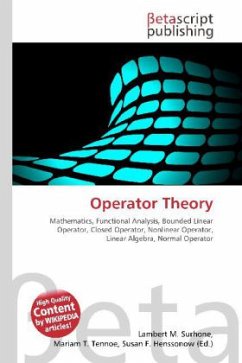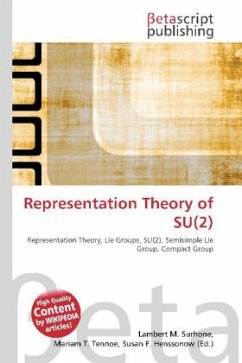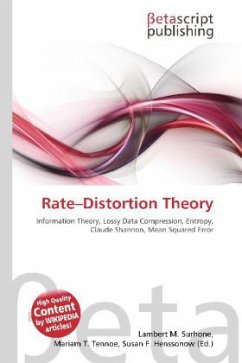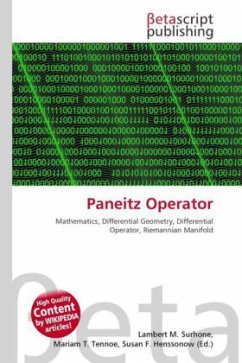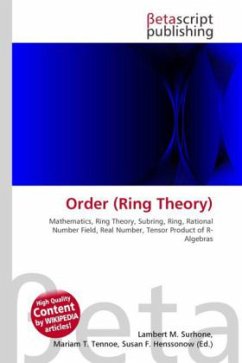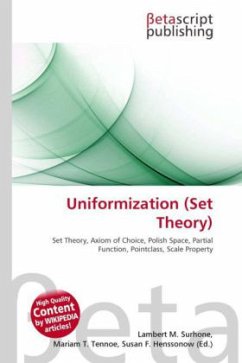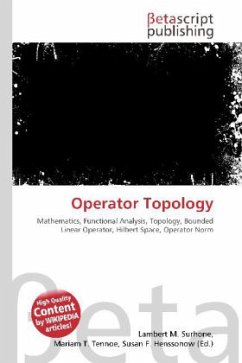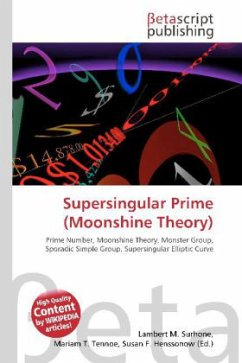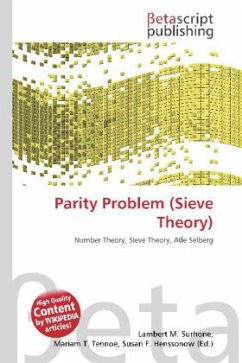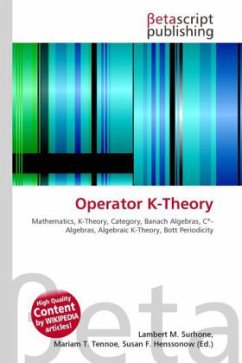
Operator K-Theory
Versandkostenfrei!
Versandfertig in 6-10 Tagen
23,99 €
inkl. MwSt.

PAYBACK Punkte
12 °P sammeln!
Please note that the content of this book primarily consists of articles available from Wikipedia or other free sources online. In mathematics, operator K-theory is a variant of K-theory on the category of Banach algebras (In most applications, these Banach algebras are C -algebras). Its basic feature that distinguishes it from algebraic K-theory is that it has a Bott periodicity. So there are only two K-groups, namely K0, equal to algebraic K0, and K1. As a consequence of the periodicity theorem, it satisfies excision. This means that it associates to an extension of C -algebras an exact cycl...
Please note that the content of this book primarily consists of articles available from Wikipedia or other free sources online. In mathematics, operator K-theory is a variant of K-theory on the category of Banach algebras (In most applications, these Banach algebras are C -algebras). Its basic feature that distinguishes it from algebraic K-theory is that it has a Bott periodicity. So there are only two K-groups, namely K0, equal to algebraic K0, and K1. As a consequence of the periodicity theorem, it satisfies excision. This means that it associates to an extension of C -algebras an exact cyclic 6-term-sequence. Operator K-theory is a generalization of topological K-theory, defined by means of vector bundles on locally compact Hausdorff spaces. Here, an n-dimensional vector bundle over a topological space X is associated to a projection in Mn(C(X)), where C(X) is the C algebra of continuous functions over X. Also, it is known that homotopy equivalence of vector bundles translatesto Murray-von Neumann equivalence of the associated projection.



